MS-ETS1-2
Evaluate competing design solutions using a systematic process to determine how well they meet the criteria and constraints of the problem.
-
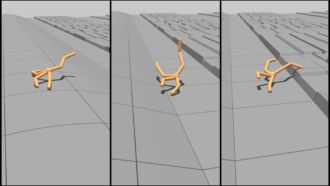 Tech
TechVirtual critters evolve bodies that help them learn
A combination of evolution and learning may lead to more intelligent and agile robots.
-
 Health & Medicine
Health & MedicineTo test for COVID-19, a dog’s nose can match a nose swab
Dogs can sniff out COVID-19 cases as well as PCR tests can — and are better at ID’ing cases having no symptoms, a new study finds.
-
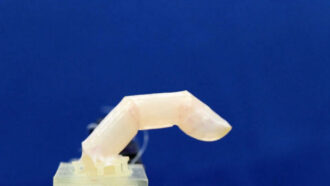 Tech
TechThis robotic finger is covered in living human skin
The advance brings super realistic cyborgs one small step closer to reality.
-
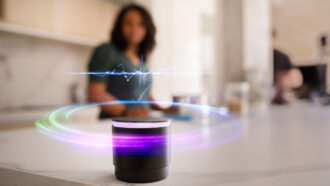 Tech
TechA new audio system confuses smart devices that try to eavesdrop
It works by playing soft, calculated sounds to help people protect their privacy from automatic speech-recognition systems.
-
 Tech
TechTeens’ new tech would send alerts to reduce preventable deaths
A trio of teen innovations created devices that can speed up the response time to pool accidents, overheating in cars and combat-related injuries.
By Anna Gibbs -
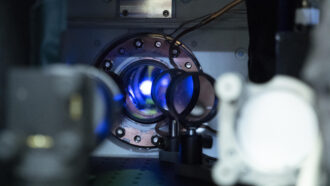 Physics
PhysicsA new clock shows how gravity warps time — even over tiny distances
This clock measured how gravity changes the passage of time in different places — even spots just one millimeter apart.
-
 Animals
AnimalsHere’s why cricket farmers may want to go green — literally
Crickets are great sources of protein, but they often kill each other in captivity. Green light could help solve the problem, two teens find.
By Anna Gibbs -
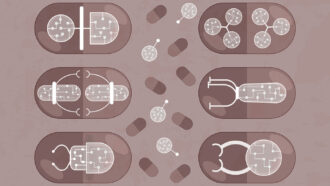 Health & Medicine
Health & MedicinePatches and robotic pills may one day replace injections
Instead of a shot in the arm, a light-activated patch or robotic pill may one day deliver your medicine.
-
 Environment
EnvironmentBubbles could help remove trash from rivers
One young engineer devised a way to make bubbles sweep away the trash floating down a creek, like the one in her backyard.
By Anna Gibbs -
 Plants
PlantsElectric shocks act like vaccines to protect plants from viruses
To protect crops against viruses in their home country of Taiwan, two teens invented a novel approach to fight blights.
By Anna Gibbs -
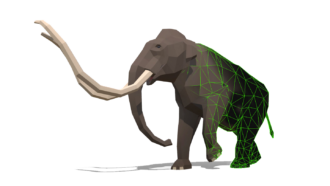 Tech
TechSmartphones can now bring Ice Age animals back to ‘life’
Scientists bring Ice Age creatures to life with augmented reality. You can view these creatures in your own world on a smartphone.
By Laura Allen -
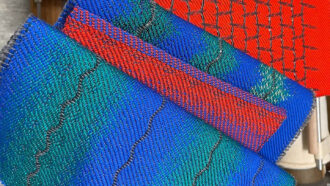 Materials Science
Materials ScienceThis new fabric can ‘hear’ sounds or broadcast them
With special fibers that convert tiny vibrations to voltages, a new fabric senses sound. Someday, such fabrics could monitor the body or aid hearing.